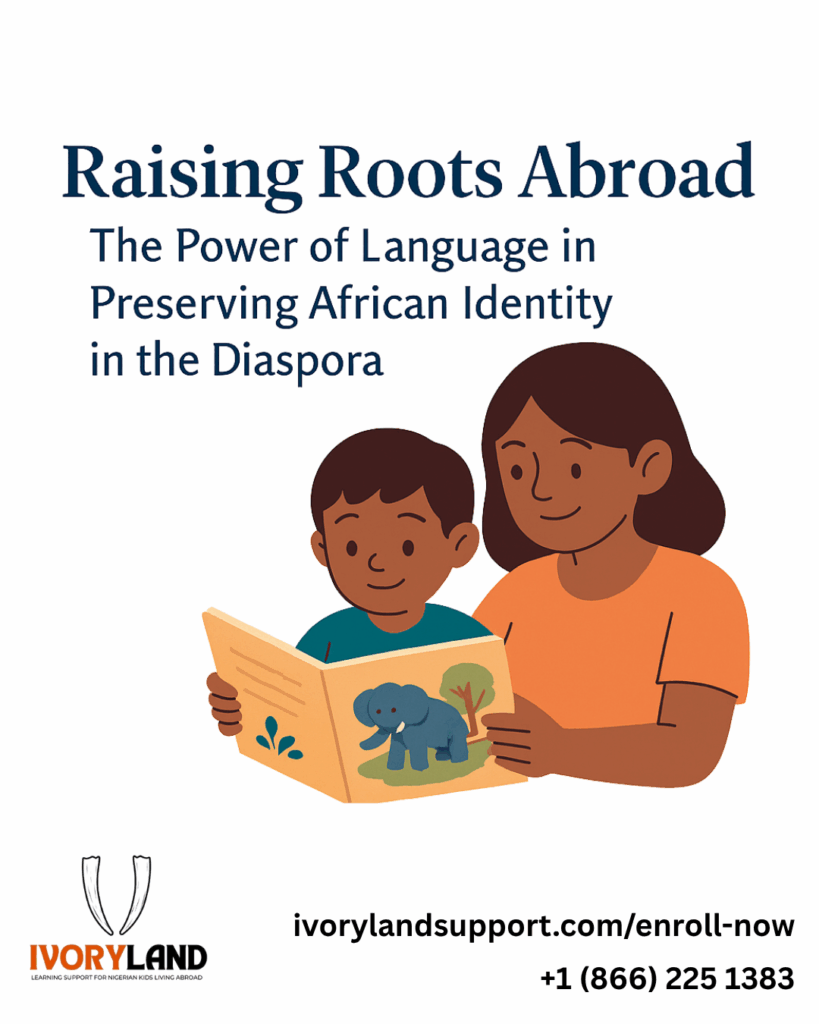When a child loses their mother tongue, they lose a part of their identity. For many Nigerian families living abroad, this reality is becoming more visible with each generation. Children grow up fluent in English or French, yet they often struggle to speak, read, or even understand their parents’ native languages—Esan, Yoruba, Igbo, Hausa, or others.
But teaching children their mother tongue is not simply about words. It is about preserving heritage, transmitting values, and nurturing a cultural identity that cannot be replaced.
1. Language as Identity and Connection
Language is more than communication—it is culture in sound. When a Nigerian child abroad learns to say “Ẹ káàrọ̀” in Yoruba, “Kedu” in Igbo, or “Ó mẹn” in Esan, they are not just greeting someone. They are taking part in traditions passed down for centuries.
Speaking the mother tongue also helps children remain connected to their extended family. Grandparents, uncles, and aunties back home often feel distanced when the younger generation cannot converse in the native language. Teaching children their mother tongue bridges this gap and reinforces family bonds across continents.
2. The Educational and Cognitive Edge
Beyond culture, studies show that bilingual children have a cognitive advantage. They are better at problem-solving, multitasking, and memory retention. Learning Esan, Yoruba, or Igbo alongside English develops mental flexibility and boosts academic performance.
For diaspora children who often juggle multiple cultural identities, this dual-language ability can also build confidence. They learn to navigate both worlds seamlessly, which becomes an asset in adulthood. For more ways to support your child’s cultural journey, explore our Ivoryland Support programs.
3. Challenges Parents Face Abroad
Despite its importance, many parents in the diaspora struggle to pass down their native languages. Common challenges include:
- Busy work schedules with little time for intentional teaching.
- Children preferring English because of school and peer influence.
- Parents themselves becoming less fluent after years abroad.
These challenges are real, but they are not impossible to overcome.
4. Practical Ways to Keep the Mother Tongue Alive
Here are a few strategies parents can adopt:
- Speak it at home: Create a “language corner” where only Esan, Yoruba, or Igbo is spoken for a set time each day.
- Storytelling: Share folktales, riddles, and proverbs in your mother tongue to make learning fun.
- Music and Media: Play Nigerian songs, cartoons, or movies in native languages.
- Enroll in Support Programs: Platforms like Ivoryland offer structured learning support for Nigerian kids abroad, making it easier for families to stay consistent.
5. Why It Matters
When children learn their mother tongue, they carry their roots wherever they go. They don’t just speak another language—they inherit the wisdom, humor, and worldview of their ancestors. They gain an identity that strengthens them in a world where cultural uniqueness is a gift. Research also shows that bilingual children develop stronger problem-solving and memory skills (American Psychological Association).
Conclusion
For Nigerian families in the diaspora, preserving Esan, Yoruba, or Igbo is not just a language project—it’s a cultural mission. It’s about ensuring that when our children introduce themselves, they do so with the pride of who they are and where they come from.
Teaching your child their mother tongue may take effort, but what they gain—a strong sense of self, family connection, and cultural heritage—is priceless.



